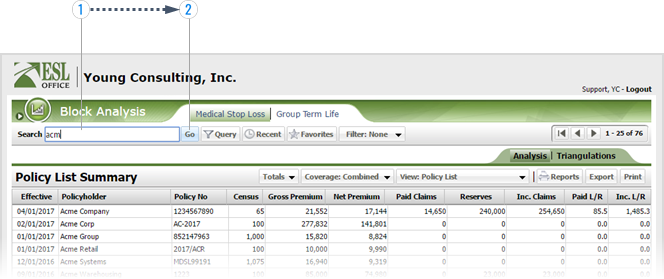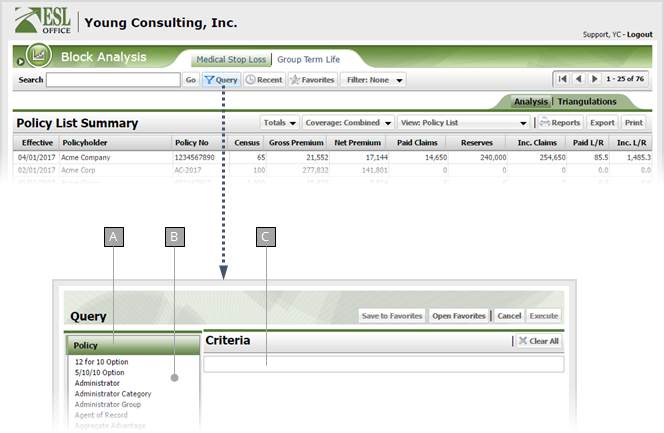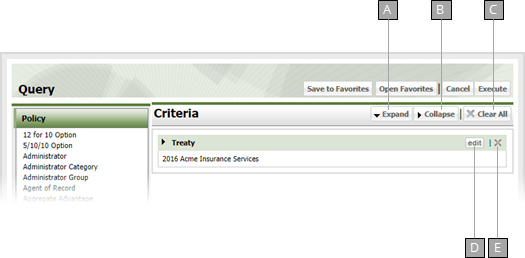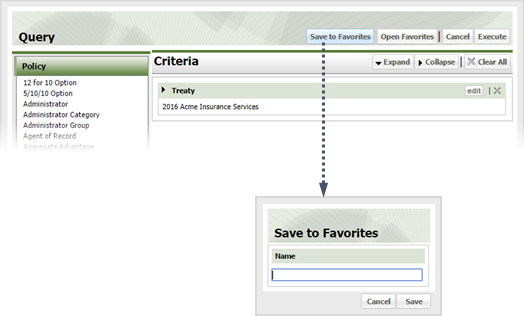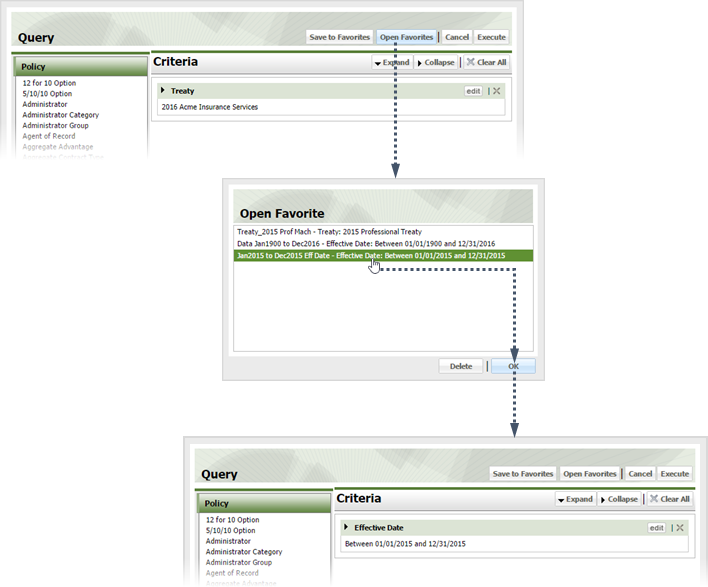Build your query by selecting and defining the desired criteria as described below. Click a criteria category to see its corresponding criteria.
Administrator
Administrator Category
Administrator Group
Agent of Record
Aggregate Advantage
Boolean parameter to specify whether to limit search results to policies with or without aggregate advantage.
Aggregate Contract Type
Aggregate Stand Alone
Boolean parameter to specify whether to limit search results to policies with or without aggregate stand alone.
Aggregated Spec
Boolean parameter to specify whether to limit search results to policies with or without aggregate spec.
Block Assignment
Block Origin
Broker
Carrier
Contract Advantage Plan
Boolean parameter to specify whether to limit search results to policies with or without a contract advantage plan.
Effective Date
Date Range parameter that returns records with effective dates falling within the specified date range.
Has Lasered Claimants
Boolean parameter that lets you specify whether to only return records with or without lasered claimants.
Lasered/Conditional
LCM UR Vendor
Marketing Rep
Nurse Assignment
Office
Policy
Producer
Producer Category
Producer Group
Producer Tier
Product Type
Region
Renewal
Boolean parameter to specify whether to limit search results to policies that are or are not renewals.
SIC
Specific Contract Type
Specific Deductible
Value Range parameter that returns records where specific deductible amounts are within the specified range.
Specific Max Coverage Limit
Value Range parameter that returns records where specific maximum coverage amount limits are within the specified range.
Specific Unlimited Max
Boolean parameter that lets you specify whether to only return records where specific maximum is or is not unlimited.
Split-Funded Aggregate
Boolean parameter that lets you specify whether to only return records with or without split-funded aggregate.
Split-Funded Specific
Boolean parameter that lets you specify whether to only return records with or without split-funded specific.
State
Status
Sub Producer
Tags
Treaty
Underwriter
UR Vendor

